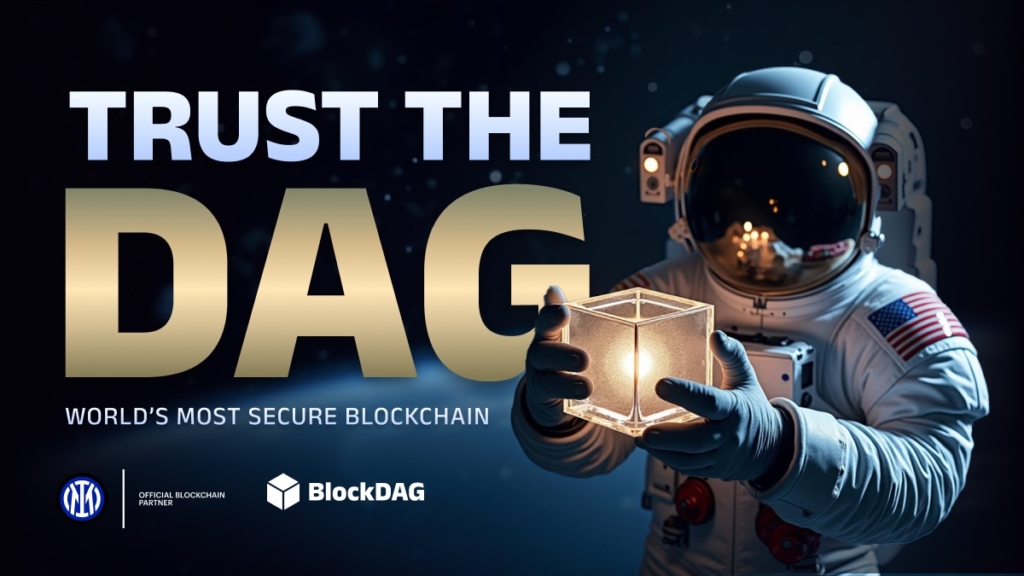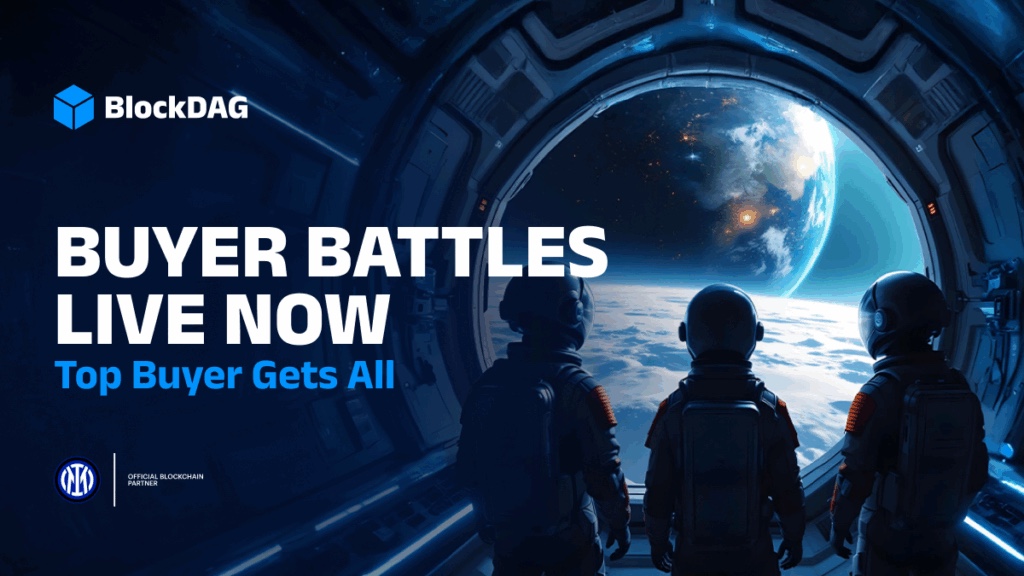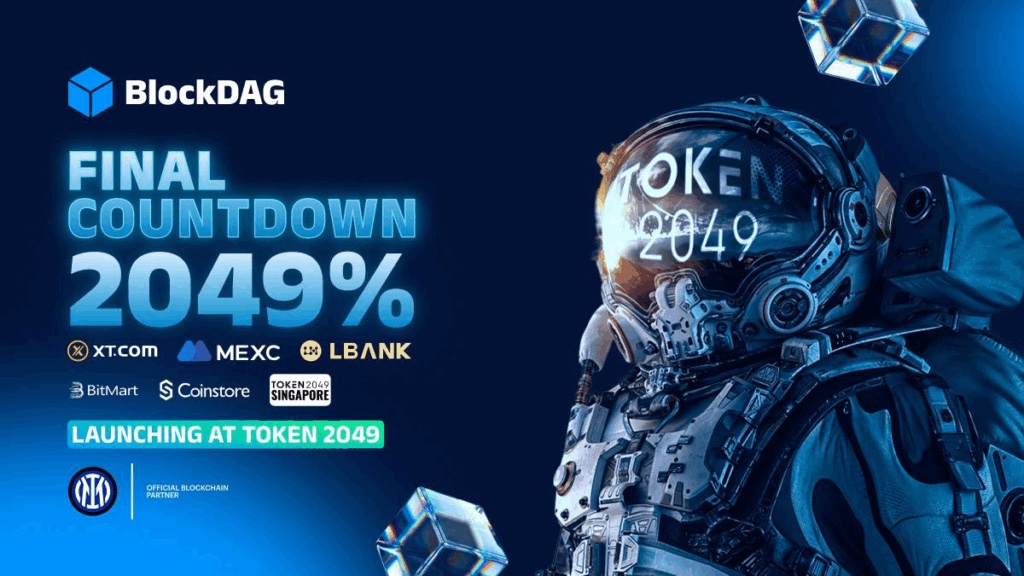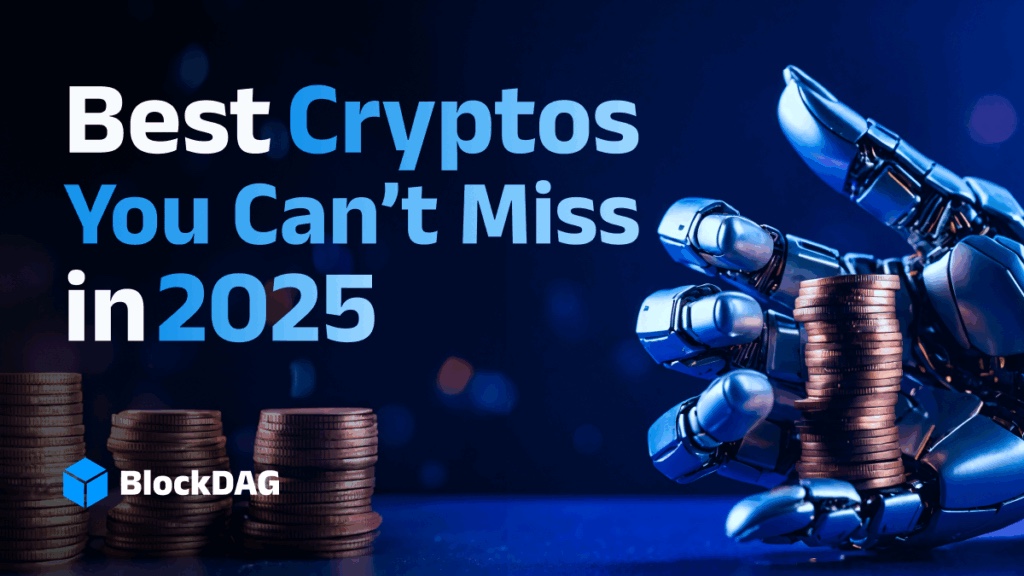As Layer 1 blockchains compete for developer attention, ease of use and ecosystem maturity are critical for growth. While Cardano remains a well-established network, it faces lagging adoption among developers. On the other hand, BlockDAG (BDAG) has turned heads with a live testnet, developer-friendly tools, and over $350 million raised during presale, making it a serious contender in the current crypto cycle.
BlockDAG’s Batch 29 is now open at a price of $0.0016, valid until August 11th. This price marks a sharp drop from its original $0.0276, offering an impressive 1,625% ROI potential. Alongside the pricing, the project offers working tools and a public testnet, positioning itself not as an early-stage concept, but as a platform already delivering real functionality. Early supporters have already seen 2,660% growth in their funds since the first batch, which underlines the presale’s strong performance..
BlockDAG’s Developer-Focused Testnet is Already Available
One major leap for BlockDAG has been its decision to launch a public-facing testnet during presale. This developer-ready environment includes:
- Full support for smart contract deployment
- MetaMask integration
- NFT minting and staking features
- Tools for token creation and transfers
- Real-time Blockchain Explorer access
These functions aren’t restricted to internal testers; they’re open for public exploration. Developers can interact with the system, test smart contracts, and experience the environment before mainnet goes live. This transparent setup offers valuable insight into how the tech works, allowing contributors to assess BlockDAG’s real utility firsthand.
Compared to most presales that exist only as prototypes or promises, BlockDAG’s approach emphasizes usability and readiness from the start. This direction supports user confidence and encourages more developers to get involved early.
Cardano Took Longer to Develop Its Smart Contract Base
The rollout of smart contract support on Cardano started with the Alonzo upgrade in 2021. However, actual adoption took longer due to the unfamiliar nature of its Plutus programming language. Early dApp development was slow, partly because developers faced a steeper learning curve.
Although tools like Aiken have made development easier recently, Cardano’s ecosystem is still growing at a slower pace than platforms based on Ethereum’s Virtual Machine (EVM). As of mid-2025, Cardano hosts over 139,000 smart contracts, and its Total Value Locked (TVL) has crossed $3 billion. But the developer tools remain less intuitive, creating challenges for teams used to Solidity and faster update cycles.
BlockDAG’s Technical Progress Backed by Massive Presale Activity
The momentum BlockDAG has built isn’t just tied to future potential; it’s tied to real progress. In its ongoing Batch 29, the crypto presale has brought in over $350 million, while offering the current rate of $0.0016. This steep discount from its starting price of $0.0276 offers a projected 1,625% ROI.
Adding weight to these numbers is the project’s actual delivery. From its live testnet to the popular X1 Miner app, which now has over 2 million users, BlockDAG’s efforts go beyond presale marketing. Its growing ecosystem is already being used, giving buyers added confidence in its continued traction.
Meanwhile, Cardano is no longer in a fundraising phase. ADA is fully tradable, and its value now depends on organic activity and broader market trends. With current trading around $0.87, ADA holders are waiting for it to reclaim its past peak of $3.10, though such returns may take longer to materialize.
Developer Experience Plays a Big Role in Project Growth
What separates these two platforms most clearly is the ease of developer access. BlockDAG offers EVM compatibility, allowing Ethereum developers to bring over their expertise without adjusting to a new language. This lowers entry barriers, making the platform accessible to a wider group of builders.
Cardano, on the other hand, uses functional programming concepts and specialized languages like Plutus and Aiken. While this allows for high-assurance coding, it makes rapid experimentation harder. For many smaller teams or solo developers, such restrictions could limit their interest.
BlockDAG’s approach offers familiar tools from the outset, encouraging early experimentation and smoother onboarding for those eager to build and test quickly.
Timing and Strategy Set the Two Projects Apart
BlockDAG is allowing early access before its full launch by making the testnet live, integrating MetaMask, and confirming major exchange listings in advance. This upfront clarity eliminates much of the doubt that usually surrounds presale projects.
Cardano, by contrast, has always prioritized precision and security, even at the cost of speed. While this deliberate method appeals to institutional users and high-assurance cases, those looking to build or interact immediately may find BlockDAG’s instant-access setup more appealing.
Final Thoughts!
BlockDAG’s combination of public testnet access, EVM-based developer tools, and affordable presale pricing positions it as a strong contender among current crypto projects. At $0.0016 until August 11th, and with over $350 million already raised, the project shows active delivery and gives early adopters the chance to benefit from real-time growth. The 2,660% increase in early backers’ funds shows how much traction it has gained.
While Cardano maintains a strong legacy and continues building through its research-led model, its slower developer onboarding and tooling challenges may keep it behind faster-moving ecosystems like BlockDAG. Ultimately, it comes down to what users prefer: immediate usability or long-term technical assurance.
Presale: https://purchase.blockdag.network
Website: https://blockdag.network
Telegram: https://t.me/blockDAGnetworkOfficial
Discord: https://discord.gg/Q7BxghMVyu
Disclaimer: Any information written in this press release does not constitute investment advice. Optimisus does not, and will not endorse any information about any company or individual on this page. Readers are encouraged to do their own research and base any actions on their own findings, not on any content written in this press release. Optimisus is and will not be responsible for any damage or loss caused directly or indirectly by the use of any content, product, or service mentioned in this press release.



